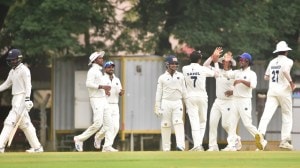Social change not static: SC on Kerala quota
The Supreme Court while deciding on whether the Kerala government has the power to make reservation for the economically backward...
The Supreme Court while deciding on whether the Kerala government has the power to make reservation for the economically backward in the forward communities,said that social change could not be viewed in a static way. It was seeking a response from the state government on a petition against a Kerala government order issuing 10 per cent reservation in government colleges for poor students belonging to forward castes.
Chief Justice of India K G Balakrishnan said a frozen attitude could not be taken of the changing social milieu,while seeking a response from the state government on a petition filed by Kerala Muslim Jamaath Council against the order 10 per cent quota as per a public order in 2008.
Some of these students are definitely backward socially because they are below the poverty line, the court said.
The council had approached the apex court challenging a Kerala High Court decision to dismiss their plea to revoke the 2008 order on the ground that such a reservation is permissible or is valid under the Constitution of India or under any other law in force. The bench will now decide the Councils query as to whether a state government has the power to make reservation for forward communities on the basis of economic condition.
The very concept of reservation solely on the basis of economic condition of individuals is alien to the Constitution of India. The government order does not state the source of power to make the reservation in dispute, the Council,represented by senior advocate Rohinton Fali Nariman,said in its petition.
The Council has asked how the state can justify the reservation under Article 15 (4),a provision enabling the state to make any special provision for the advancement of any socially and educationally backward classes of citizens. Kerala has already identified and classified the backward classes in the state. Economically backward sections of forward communities is not among the backward communities, it contended.



- 01
- 02
- 03
- 04
- 05




























